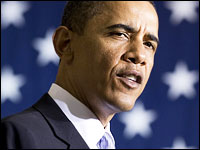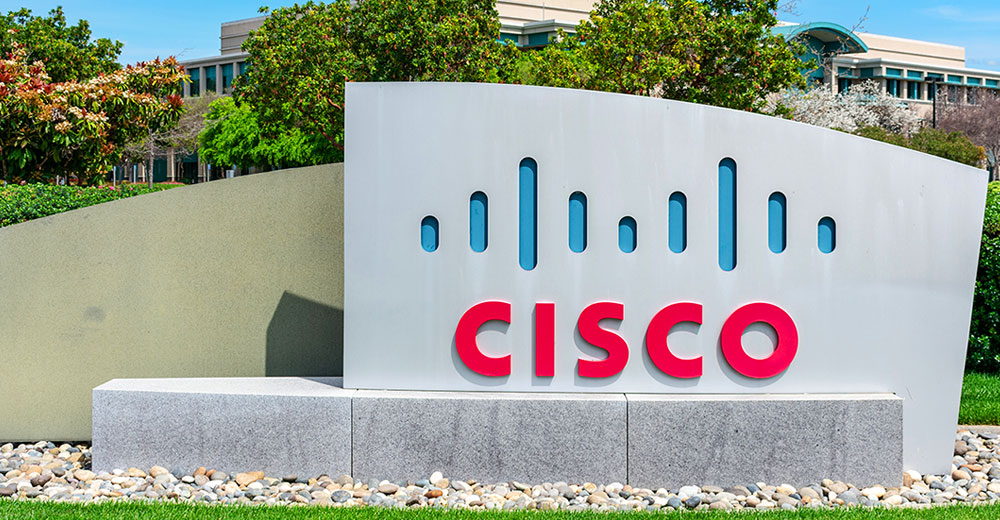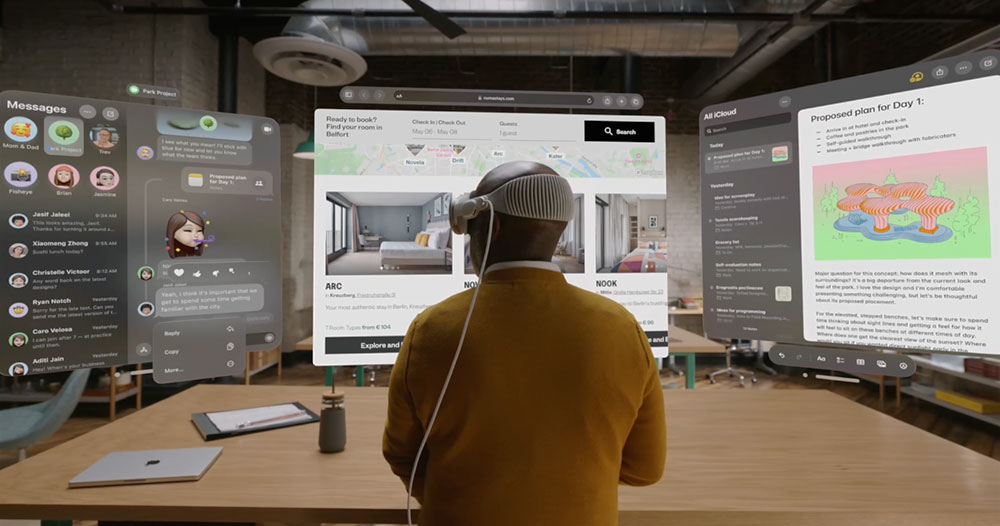At some point, as an analyst, you have to look for what ails an industry, and right now, it isn’t the economy or even a lack of innovation behind the tech industry’s woes. Instead, it is what appears to be a massive attempt by the U.S. government to destroy it.

While I call out the administration in the title, Congress is clearly equally to blame — and, apparently, the Supreme Court, which is deciding a huge number of technology cases but hasn’t yet discovered email. They are so far out of touch, they aren’t even in the same century.
The handling of the NSA disclosures has had a chilling effect on international technology sales as foreign competitors and governments have used this as an opportunity to ban otherwise superior U.S. products and services. I’m starting to wonder what a terrorist group could do to the country now that our own government isn’t already doing.
Given how ineffective the U.S. government seems to be, it is kind of amazing how they seem to be killing the technology market in three easy steps.
In any case, we’ll close with my product of the week — the Neato robotic vacuum, which I consider the smartest robotic vacuum currently on market.
Step One: Unaffordable Healthcare
This came home to me recently when my Chinese neighbors, who came to the U.S. for better opportunities, moved back to China for — you got it — better opportunities. The costs of doing business in the U.S. are inordinately high, resulting in an increased inability to compete globally.
Where people once came to the U.S. for opportunities, they seem to be fleeing the U.S. at the moment, and I think part of the reason is the high cost of healthcare.
We currently have one of the most expensive and least effective healthcare systems in the world. What the administration should have done — and I’ve said this before — is fix the cost problem, then move to greater population coverage.
If you can’t afford a healthcare system, spreading it to tons more people makes it less affordable; then, putting the increased burden on businesses simply drives those businesses to develop products and open markets elsewhere. Technology is a highly competitive industry, and the U.S. has — well, had — a significant lead in innovation.
Step Two: Don’t Promote or Protect
We saw this in spades with the solar industry: Here was something where the U.S. had both a significant lead and a significant need. You can connect a good chunk of our latest set of wars back to our addiction to foreign oil; solar power, properly applied, could have not only significantly cut that addiction, but it was something we could export to great success, thus saving lots of U.S. lives.
Instead of investing what it took and making sure the companies succeeded, however, the government under-invested and did little to protect. Now, for the most part, the solar industry belongs to China.
The technology industry uses a ton of power, and cheap energy is critical to remaining competitive, yet we clearly have lost the race for that now and seem to be torn with regard to fracking and other more advanced ways of pulling oil from our own soil because of concerns that the process poisons the land and kills people. What pussies, right? Real men invest in technologies that are dangerous rather than those that are safe and cheap. This is because real men are idiots. Granted, the administration may finally be taking some action, but it really seems too little and too late now.
Korea massively promotes its technology industry and has moved to make sure its citizens are the most connected while China funds its technology industry and may be the next country to put a man on the moon. Yet these countries are putting their massive resources behind the idea of kicking the U.S.’s ass while the U.S. Government for the most part is more interested in infighting than protecting this massive resource.
Step Three: Scare the World Away from US Technology
As if those other things weren’t enough, the NSA PRISM program and related disclosures from both Snowden and Manning have made it clear that you can’t trust U.S. technology companies. Every subsequent leak reinforces this message, turning the whole event into a massive marketing coup for foreign competitors, who now can ban U.S. products in their countries for legitimate causes. We actually started this by banning Chinese goods for the same reason, even though there was no more evidence that China was compromising their hardware than that we were compromising ours.
In fact, you could argue the Clipper Chip made us look worse. This was clearly an example of the old saying, “if you live in a glass house, don’t throw stones,” and our government was throwing huge stones at China. Now, thanks to the government’s cavalier attitude toward security and privacy, China and others are tossing huge boulders back at our technology companies.
This piece in ZDNet about banning Windows or not showcases that even the Germans can’t seem to figure out what to do — and when Germans get confused….
If you go back to the 9/11 analysis, it wasn’t a lack of information that resulted in the disaster. We had plenty of intelligence. We just ignored it and left in place policies from decades earlier that let people easily take over planes. Yet we used it to justify massive invasive illegal probes creating mass amounts of data when our own analysis showed we don’t know what to do with the data we were getting legally.
Think of that: Our problem is we can’t use the data we have effectively, and the fix is to go get a ton more of it illegally. That’s when you really start thinking people are insane.
This PRISM thing is really creating a problem we may not recover from because different security officials, as each portion of the document becomes public, seem to have less and less credibility, as they are caught in a string of their own lies (note this link is The Huffington Post, not Fox, calling Obama a liar). There is so much distrust even Groklaw closed down.
When you consider Bradley Manning is being legitimately considered for the Nobel Peace Prize, the joking about Obama returning his award stops sounding like a joke. When the conspiracy nuts suddenly start to sound like the sane people in the room, you are really screwed.
Oh It Could Get Worse
A lot of folks complain that the three branches of government are all pretty much broken and can’t get things done, but if they are broken, then not getting things done is actually a good thing. Thank god for folks like Elon Musk, who are clearly working to offset this trend, but in a fight between Musk and Obama I’m betting Obama wins, and that means we are truly screwed.
I’ve never been a fan of Sarah Palin, but that talk she made on how hope and change were actually bad things now resonates pretty well with me, and when Palin starts looking smart, something is really broken.
One more thing you should read is the Washington Post response to a ZDNet piecesuggesting the NSA wasn’t that bad. In it you see that the reason ZDNet was fooled was because the government changed the taxonomy — they simply didn’t call the bad stuff they were doing bad stuff. Kind of like calling the innocent men killed accidentally in a drone attack “enemy combatants.” Fortunately, we’d never do that — oh crap.
Granted, it could be worse — we could be Syria or Egypt. The problem we see there is what happens when people stop trusting their government. I’m not convinced that if we did a survey in those countries and compared it to this one on trust we’d see that much difference. As I said, when the conspiracy theory wackos start sounding like the smart folks in the room, you are truly screwed.
Unless something is done to protect the technology industry from the U.S. government, even folks like Elon Musk won’t be able to save it.
Product of the Week: Neato Robotic Vacuum

It may be a while before we get robotic cars, but you can get something pretty close in the Neato robotic vacuum. I picked up a new one of these last week and am still impressed.

I may have every Roomba ever made, and they make a good sweeper — hell, they should they make military-grade robots — but they aren’t very smart and they really aren’t vacuums for the most part. More like powered sweepers.
The Neato is a real vacuum, but what makes it even cooler is that it has a guidance system similar to what is used in self-driving cars. It actually can see the room and map out a course. Granted, this is partially because a vacuum uses more power and so can’t afford to bounce around the room like a gerbil on drugs, but this leaves the carpet looking nicer and cleaner. It also kind of sounds like a turbine when it is running; while that means you probably won’t be using it at night, I’m pretty sure it would scare away burglars, and it makes it extra cool to watch.
The Neato is the best robotic vacuum. I have the pet and allergy version because, well, I’m up to my armpits in cats — and I’m allergic to them (oh joy). The devices range from around US$250 to $500; the one I have costs about $321 (Amazon). A robotic vacuum that works like a self-driving car is just cool, so the Neato robotic vacuum is my product of the week — I just wish I’d gotten the black one.


























































































